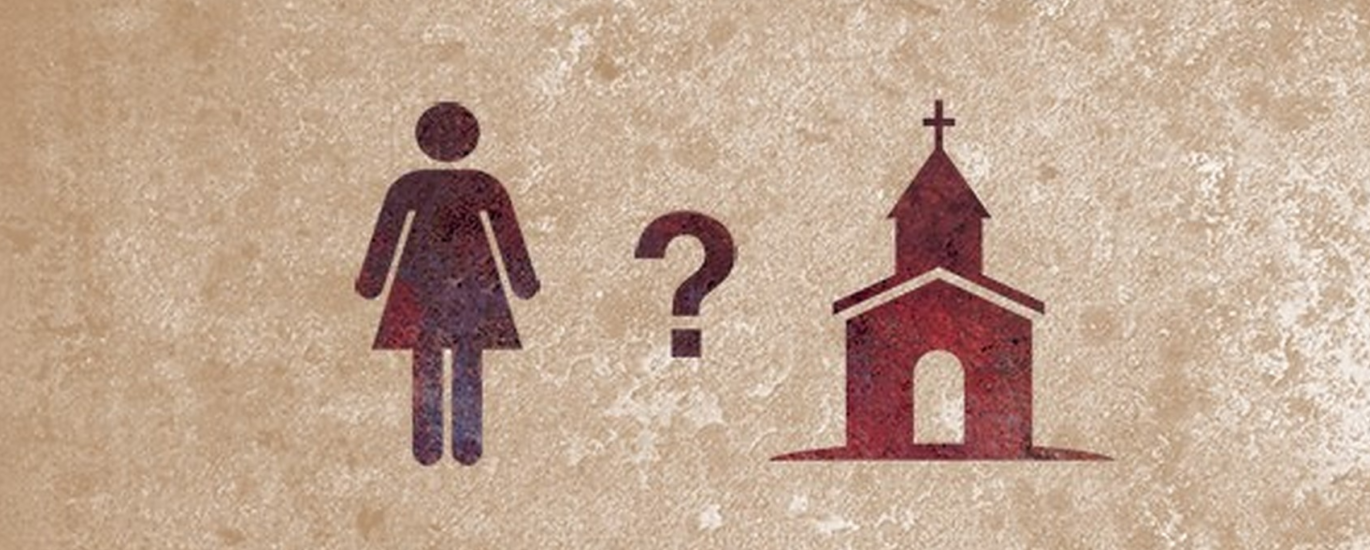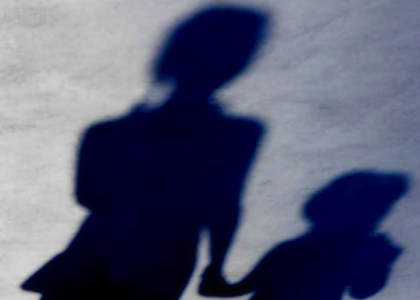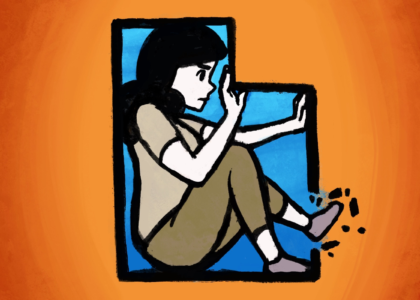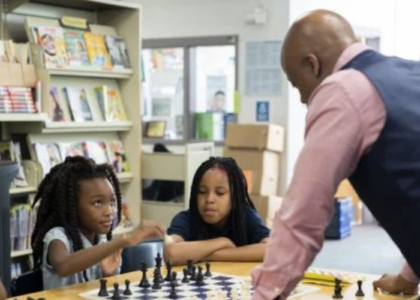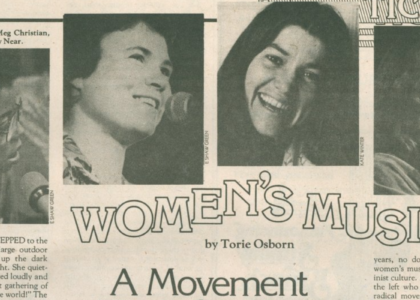“from Easter bonnets to Gogo boots”
A church (which is just a building used for Christian worship) can look like all sorts of things. Some churches boast stunning stonework and intricate stained-glass windows, while others are only modest wooden structures. You can find churches built up in trees, in caves, or on top of volcanoes. Some swell with the sounds of solemn hymns while others are radiant with music and praise. What these churches all have in common, however, is that they’re centers of faith, of doctrine, and of community engagement, and they often hold power in the community’s that they serve. Can that power be disseminated and wielded responsibly? Of course it can. However, far too often we find troubling stories of toxic patriarchy and abusive behaviors surfacing within our church communities.
On today’s episode we’ll be joined by two guests — Kathy Barbini and an Anonymous Contributor — who share their stories and help us explore the roles of patriarchy in our churches and beyond.
Our Guest
Kathy Barbini

Kathy Barbini (she/her) is an independent documentary filmmaker and former producer for national television programs. She loves hiking, the ocean, movies and reading.
.
Our Performer
Julia Alora (she/they) is a transplanted Portland sculptress inspired by biology and the natural world. Her works can be found lurking in the woods, guarding her studio, and in co-op art houses around the city.
We’re grateful to Julia for bringing a story from an Anonymous Contributor to life.
Julia Alora

PART ONE.
Accountability
by
an Anonymous Contributor
Did your youth group have accountability partners? Mine did. If you’re not familiar with this particularly insidious practice, let me paint you a picture. An emotionally underdeveloped 23-year-old youth pastor who’s fresh out of bible college encourages a bunch of teenagers to hold each other accountable based on shallow outward manifestations of perceived sins. Because the act of actually doing pastoral work and enriching the spiritual growth of teenagers is far too difficult compared to the alternative option of trial by peers and shaming literal children (mostly girls) into wearing baggy fitting clothes and thinking masturbation is sending them to hell.

Some may say that description might be a little dramatic, but you get the idea; an accountability partner is someone you share your darkest sinful thoughts or actions with and together you pray, give each other advice, and try to live out better Christian values. It’s not a bad concept and I do think most people would be better off if we collectively held each other responsible to our actions, or at least questioned some of our beliefs. Unfortunately, the church has taken the practice of accountability and applied it only to easy surface level offenses. It’s much simpler to call out a young girl for wearing a tank top than to have a hard conversation about consent and body autonomy with a boy who sexualizing shoulders. I personally was hit over the head with a bible by a “friend” for using a mild curse word, but slight violence is warranted because I’m the one who f*cked up, right?
Additionally, this accountability system offers a level of security for churches. An outsider’s perception can easily be appeased if things on the surface are curated for a particular Christian aesthetic. Well-mannered children, transparency of finances and tithe in the weekly bulletin, chili cook offs, pie auctions, and the always adorable children’s choir performances are some of your quintessential wholesome church family activities. But when accountability applies only to how you act, and not to who you are, the undercurrent of potential dangers is endless. Give it enough time and you’ll eventually hear whisperings of sins far greater than exposed shoulders, books about witches, and kids who say, “f*ck’.
The story I’m going to tell today could be considered a cautionary tale to warn what can happen when the church doesn’t hold people accountable. It’s the story of a young man. Let’s call him Chad, mostly because there isn’t a name in the English-speaking world that offers as much grotesque heaving’s when spoken. If you haven’t had an experience in your life to warrant gagging when you say the name Chad, how does it feel to be god’s favorite?
I first met him in a group of friends. He was charming, engaging, and friendly. I think we went to an outdoor art show or something. He reminded me to not touch the oil paintings as I had expressed my love for the various shapes and textures present in oils. I knew of some people who didn’t like him, but the majority of my friend group seemed to hang out with him on a regular basis, so I didn’t think much of the negative murmurs. We talked a bit, nothing flirty or sexual, but pleasant conversation. So, I was taken aback a few days later with his stark change in demeaner when he stopped in for a morning latte at the coffee shop I worked at. I was the one ringing him up, he was cold, didn’t make eye contact, gave short responses; it was like we had never met. But I’m a reasonable woman and not every person is capable of small talk early in the morning, I get it. But I worked with a few of Chad’s friends and his next visit to get coffee was when his buddy was around, he was back to being friendly, engaging, and complimentary. F*cking whiplash, man. This trend continued for years. Friends = conversations, just me = I don’t exist as a human. Cool.
He was a pastor for junior high schooler’s at the church I went to. Just another douchey church bro who everyone forgives his sometimes-poor behavior because, you know, “he’s just so great with those kids” and “he really connects”. “Nobody’s perfect, the church should show grace as Christ did”. I guess God does have a funny sense of humor, because a couple years later Chad and I ended up in the same college aged ministry together as leaders. We didn’t have to interact very much, and trust me, after years of being treated as f*cking wall décor at a coffee shop by him, I wasn’t really sending out chill vibes his way. We didn’t talk unless necessary and we both preferred that. So, when a student in the college group confided in me that she had been on a date with him and he treated her poorly, I didn’t have an ounce of f*cking grace for him. Luckily my years of spiritual trauma and abuse towards myself and other female peers had kept me afloat from sinking into the undercurrent of the church that makes excuses for such behaviors. Unfortunately, this wasn’t the first time this story had been told about him, but it was the first time that it wasn’t a whispering.
It’s much simpler to call out a young girl for wearing a tank top than to have a hard conversation about consent and body autonomy with a boy who sexualizing shoulders.
Let me clarify, I 100% subscribe to the idea that if everyone is over 18, informed, and consenting, have fun. So, a story of a 21-year-old being cold shouldered by a guy she made out with one time, doesn’t seem like an earth-shattering accusation. But like I said, this was the first time it wasn’t a whispering. Over the years there had been similar stories of his behavior. But it was always second hand, from a concerned friend trying to protect the identity of a victim while simultaneously wanting the church to know of a problem within their leadership. Without firsthand accusations, the church legally could not take action. For the first time, someone was willing to speak up for themselves.
There was a family in the church that was very involved in Chad’s life and they often trusted him to house sit when they would go out of town. Over the years, whenever he had the house, he would find some young church girl, never in the congregation, but usually a student at the university nearby, and he would ask them out for a date. He’s house sitting, there’s a hot tub, he’ll pick you up, it’ll be fun!
He’s a pastor. You’re safe.
Right?

Chad would pick them up, take them to the house, get them in the hot tub and begin to physically engage with them. Some of them consented, others didn’t, but that never stopped him from pushing boundaries, touching their bodies, or lifting them up and putting them on his lap. Some would request to go home, clearly shaken from the behavior of a f*cking pastor, but he wouldn’t take them. Instead, he would spout off some generic apology, and suggest switching the events to movie watching or something frivolous. But a new activity wouldn’t stop his persistent behavior, and clearly the apology was only to keep them where they were. Regardless of what happened during the night and who enjoyed themselves or who didn’t, the ending was always the same. He would tell these women how tempting they are, how he couldn’t control himself, how they were a stumbling block for him, and he needed time and space to process his behavior and talk with God about seeing them again. He would really appreciate it if they respected his spiritual privacy. And then he’d ghost them. Repeating this behavior every couple of months. For years.
Sure, he never raped anyone, or hit a woman, or threatened violence. He didn’t have too. He could get his while still ‘technically’ remaining a virgin and ticking all the good boy Christian boxes. Constantly toeing the line. Maybe this is the Christian version of edging? I don’t know.
What I do know, is there are certain professions in this world that require a different set of behaviors than they do for others, and a pastor is one of those professions. If you want to date around and have frivolous physical relationships with multiple partners, go for it! That’s normal and maybe even necessary for some individual’s personal sexual growth. I’d even argue that you can do that ethically according to Christian philosophy. But if you sign up to be a pastor, you are held to a different set of standards and that just comes with the job. In the same way we would hope pilots don’t fly planes to crash them, or that doctors don’t perform surgy with intent to harm. For those in the church, they hope pastors live out Christian values that align with their beliefs.
It is understandable that an outsider to the church may not understand how one person could silence multiple women, in such a small community who a had such similar experiences with one man. But that’s the f*cked thing about accountability.
This is what happens when girls are consistently told they’re a stumbling block to men, that they are the cause of sexually driven actions, that it’s their fault if the bodies they live in are sexualized; constantly being compared to chewed up gum, rings with missing diamonds, and petal-less flowers. When accountability has more to do with covering shoulders than it does with consent, you get generation, after generation of women disconnected from their bodies. The second a man steps in and abuses them, it doesn’t take much more than confirming the accusations that have been against them since puberty to gaslight them into silence.
No, Chad never assaulted me, but other men did. I know this system of silencing works because after I was sexually assaulted for the first time, it took me years to realize what had happened to me. The church will preach that your body is sacred, a temple that should be cared for. But nothing poses more immediate danger to your physical being than the patriarchal purity narrative that can leave you disassociated, unaware, and without agency.
Personally, I brought forward three letters to the church from anonymous women who had heard there were finally actions being taken against him. I held their stories close to my heart and did my best to speak as loudly and confidently as a could on their behalf. Exhausted and relieved that maybe, for once, a shit head pastor was going to be held accountable to his actions. Additionally, there were a handful of women who I knew had experiences with him that chose not to participate, and I was optimistic that maybe as more and more came forward they would join. But I hate to say this story doesn’t have the ending we’d all hope for.
Mid investigation, Chad found a new job at a different church in a different city. His new employer didn’t ask for references, so the church had no ability to transfer over the investigation without the possibility of legal repercussions such as defamation of character.
Before this, the church had put Chad on suspension from his position of youth pastor, halted a promotion, and had a list of things he needed to do before he would be considered for reinstatement. This included things like therapy, finding a mentor, and the like. He was also required to meet with any person who needed closure and that included both victims and story holders such as myself. And you can bet your sweet ass that I would be taking him up on this offer. I’m a queer Scorpio with daddy issues, I don’t avoid hard conversations.
…he never raped anyone, or hit a woman, or threatened violence. He didn’t have too. He could get his while still ‘technically’ remaining a virgin and ticking all the good boy Christian boxes.
The approach from the church was that leniency should be extended because “hurt people, hurt people” and the best way to stop the abuse was to “show grace and allow them to get help”. For a moment there they had me: I walked into Chad’s office believing all of this, but thought it was bullsh*t when I left 20 minutes later. He greeted me with the same feigned effervesce he used when forced to acknowledge me in a group. Only this time we were alone, and it was awkward. We talked a bit; I did my due diligence to ensure he was following through with his therapy and mentorship in the new city. He gave surface level answers as he paced around his half-packed office putting theology books into boxes, finding any task that would excuse making eye contact. Just before leaving his office and hoping that this could be done for good, he posed a question, “If what I was doing was so bad, how did it take this long to come out?”
F*ck.
I know a few people who contacted his new employer letting them know there had been an investigation against him for sexual assault. They agreed to take actions and continue the investigation IF Chad consented to having the documents sent over. Obviously, he did not. Trust and believe, the irony of the church needing consent from an abuser in order to protect women, who never had the ability give their own consent, is not lost on me.
About a year later news spread that he was engaged. She was younger, he waxed poetic on social media about how she was the one and made him a changed man. One night around that same time, I was out for a happy hour with my best friend and a couple others, including a new girl I had never met before. A few $5 Mai Tai’s in and this girl starts telling the story of the time Chad asked her out when she was in college, took her to a remote location, tried to force her into physical activity, and then used god and shame culture to silence her. She wasn’t particularly phased by his actions, having enough life experience to acknowledge what he was doing; laughed it off and just walked away. But I was pissed.
I don’t typically drink rum, but that night I learned that apparently it empowers me to move with righteous justice. I found Chad’s fiancé on Facebook and sent her private message. I told her a similar story I’ve shared today letting her know his past actions. I told her I hoped he had continued to seek help and made certain that she knew two things; first full awareness of the abuse he had done to others, and second, that if it was ever needed, she had a full community of women willing to hold her story.
This is what happens when girls are consistently told they’re a stumbling block to men, that they are the cause of sexually driven actions, that it’s their fault…
Consequently, I was blocked on all forms of social media by both him and her. My actions got mixed reviews; some fully on board because, f*ck him, and others shocked that I would try and meddle in a marriage. But the reality is that the best thing that could happen is that I’m some stranger on the internet talking shit. The worst thing that happens is that she marries someone who abuses her. Can you imagine being married to someone and one day they abuse you and you find out that not only had he done similar things before, but people knew, and no one ever said anything to you? They just waited in silence.
Either way you spin it, I know I did the right thing. I had spent too much time not just holding the stories of Chad’s many victims, but stories of shamed women in the church throughout my life. A woman kicked off worship team because she was pregnant and not married and that can’t be allowed up on a stage. A female children’s pastor who had an affair with a male coworker. She’s ultimately fired while her male counterpart remains employed. No one stopped to ask why they cheated but could only believe that she was the slut who should be punished. Stories of a woman who left the church because her youth pastor husband had a secret family she didn’t know about, and no one cared to tell her. Images of myself and my friends at summer camp sitting in water drenched baggy t-shits by the pool because our swimsuits were too sexual while the boys ran freely topless enjoying the summer heat. I held myself accountable to his fiancé and the women who came before her.
Sometimes protecting women looks like hard conversations and truths that can come back and bite us. Although what I did can look like total badassery and bold female empowerment, trust me it wasn’t. It was an impulsive action spurred on by an exhausted spirit who couldn’t stand holding one more story. I had to do anything I possibly could to prevent one more person from being hurt. It was a way of screaming into the universe and to any god that would hear me that I can’t f*cking take it anymore! But I will say with confidence that this is by far the best impulsive decision I’ve made while drinking. I guess it’s in god’s hands now.
I know my story isn’t new. Unfortunately, purity culture and shame is regularly used in the church to silence victims. I am also aware that women only make up one small part of those who are abused and if you are anything other than white and male, you’re fair game. It’s because of these reasons and many more that I no longer associate myself with the church or Christianity. And maybe one day I’ll share those stories. But for now, I do hope that my ending is different than the ones you’ve heard before. That it offers a little bit of relief and maybe some hope. And the next time you think of what accountability means, it involves a loud voice, a little alcohol, some shameless conviction, and a little less brokenness.
PART TWO.
Kathy Barbini
Does structural patriarchy still exist in our world? How does it affect human life and how has it affected my life? Those are big, big questions and I’ll try to attempt to answer them the best way I can.
I’d like to try to consider the questions in context of history that women and girls were the first slaves from the beginning of time we’d been oppressed and subjugated. I was just this morning, I was looking at some of my files and I found a Life Magazine article photo from the cover actually that had a picture of Eve carrying an app, holding an apple. It’s a very large picture of Eve, naked Eve, and a woman, a modern-day young woman next to her holding a sign that said “Eve was framed” and the title of the life cover and an article inside is ‘The Woman Problem: Then and Now’. So with that, I think the answer to the first question — does it still exist in our world? — I would say absolutely it still does.
Despite all of the incredible work of feminism and, you know, women rising in leadership positions throughout politics and corporations and across the board, patriarchy is still an issue. That is to my dismay, but I don’t think that it’s forever. And I hope I can kind of tackle that in here.
I hope it’s not forever anyway.
I wanted then look at how it impacted my own life. I go back to my earliest memories of being born in 1957, which was right before the feminist movement really started, so I kind of was born into a really interesting time from the 50’s when women were still housewives, and the Maytags and the advertisements for women to make sure they join into Tupperware parties and so on. My mother was one of those 50’s women, I think she was actually locked into some of the trappings of that. And also I was born as a Catholic and was baptized as an infant in the Catholic Church. I laugh when I think about it because my godmother was my aunt who ended up becoming a lesbian later in life. After she had married and had two of my cousins, she ended up marrying a woman. So it’s all an interesting kind of journey I’ve been on in terms of being raised Catholic and being baptized Catholic.

It was all pretty confusing because my mom ended up having five children, and once at one time told me that she didn’t actually really want five children. But the Catholic Church, their belief of not using contraceptives was something that she followed not thinking she had a choice. And as much as she loved us, I think it was just way too much for her. I had a mother that I watched being part of this patriarchy that I watched her try to untangle for most of my life…which she didn’t do very successfully, being under kind of a cultural patriarchy. The 50’s were not just religious women that were in these housewife roles and oppressed, but it was all of culture. It was happening for women across the board.
I really remember as a little girl watching her struggle, trying to rise from patriarchy as she kind of started getting influenced with the 60’s and the feminist movement. I literally saw her go from Easter bonnets to Gogo boots and miniskirts. And it was all very, very <laughter>. So this was my early years as a little girl, watching all this, and then I was also born as a daughter, a first daughter, and my brother was 11 months older than me (my mother got pregnant two months after he was born with me).
I was kind of born into being in the shadow of my brothers, even in my family system. I don’t know if it’s sort of the Italian (my father is Italian) kind of men are more in focus in families than women. And I think culture too was—you know, in marriage and in the Catholic faith, the husband was the provider and the wife was the housewife, and the brother was the father’s focus. So my brother became kind of the leader, my leader, my father’s pride, and the girls were in the kitchen with mom and they were just fine the way they were.
So here I am, under the umbrella of the cultural patriarchy, the religious patriarchy, and then the family kind of system. And it was, it was interesting because I was both a tomboy as a young girl and also loved my Barbie dolls and played house a lot. I was raised to think girls could only be teachers or nurses or mothers. It was all a struggle.
So that’s kind of the early years. My mom really did abandon the Catholic Church after a while. I think I was 10 when we left the Catholic Church, partially because of feminism and partially because my parents started getting more into the mainstream of keeping up with the Joneses and getting a bigger house. Religion fell by the wayside, so we suddenly had no more church. My mom was pretty much at that point trying to be a feminist, but she was still trapped in her body that didn’t feel she was worthy and didn’t know how to navigate getting…what did it mean to her to be a feminist? I don’t think she really ever figured it out. I think a lot of it was wearing the clothes that looked the part and trying to find herself and what she had lost a long time ago and never found really.
Unfortunately, it was all a struggle. She started drinking. I think a lot of the women in the 70’s and even the 60’s, there was a lot of alcohol and parties and block parties and white suburban neighborhoods, women in their coffee clutches. And then later they turned into dinner parties, gourmet dinner parties with lots of alcohol, alcohol on the beach. She eventually became an alcoholic and really never quite was able to find what she wanted and find her sense of freedom.
Meanwhile, I want to also bring up that the fairy tales that I grew up with: Cinderella, the Princess and the Pea. I still had a lot of that within me and I remember at some point the Cinderella Syndrome book came out. I forget when it was, I don’t know if it was the 70’s, but I remember being really impacted by that it was all women trying to undo this looking for ‘Prince Charming’ and being sort of seen as, and holding in our hearts that that was the way to freedom—to get married and have a man who would save us and provide for us. I think a lot of my mother, who modeled that and was an influence on me not being able to kind of break away from that. We don’t need a man to fulfill us or a husband to provide for us. I never really, in my teenage years, understood how I myself could be a feminist and how I could find a career and be married if I chose to and be a mother. I think for a long time I felt like I had a lot of the traditional ways of believing marriage should be that I didn’t want, but it was what was modeled to me.
So that took a very, very long time for me to undo. And I think in many ways, I’m still undoing that we as women and men are separate individuals and that men don’t have to be the leaders and the providers of the family. For many men, it’s very stressful and unrealistic. For some it works and that’s what they love, and women love that. There’s a lot of that kind of modeling still going on in our culture, but we do have a choice. In some ways I almost feel like we have to rewrite our own fairy tales. And it’s funny, I actually just wrote a poem about rewriting the Cinderella story—that I think we all need to do that, to rewrite the fairy tales that we grew up believing as women and girls. And I don’t think it’s just women my age, in later years, but it’s even younger women.
I remember my niece when she was three years old, running down this wharf in my hometown of North Port, Long Island. It’s sort of a harbor town. There was a bride walking down the wharf wearing this beautiful white dress, and my niece was running after going “Cinderella, Cinderella, wait, wait.” and I thought, wow, even younger women have this struggle, this fairy tale where getting married is the ultimate goal for a woman. She’ll be like Cinderella and find Prince Charming and life will be happy forever after.
Of course, there’s also many younger women that are leading the way as feminists, as women who run their own lives, and are fulfilled and so on. And women, older women too; Gloria Steinem, and even women in the Christian world, evangelical feminists that I’ve interviewed and filmed for a documentary I’ve been making. They’ve really challenged the religious patriarchy or the societal patriarchy and women are leading the #metoo movement. It’s just phenomenal what’s been going on. But there’s so many elements of what gives a woman the confidence and the power to undo the patriarchy that they’ve been brainwashed to believe. I think it just really depends on the individual and where we came from, how we were influenced in our childhood, our personalities, and our way of looking at the world. So, you know, I think it’s a mixed bag of us women and girls—how we will face the patriarchy in the world and how we will either undo it or get smothered under it.
But regardless of the progress feminism has made and women have made in breaking down patriarchy, ending patriarchy, patriarchy has a way of shape shifting, I think throughout culture and society and through decades.
I actually have just come across this over the last ten years and part of my own journey has been spiritual searching. I somehow, after leaving the Catholic Church back when I was a young girl, explored different religious traditions and spiritual traditions, and then I had a real kind of life changing thing happen to me. I had a series of dreams—they were intense—of Jesus coming to me. These three dreams were so profound and were each with the themes of Jesus freeing women and girls. They just really just…wow. I didn’t even really know Jesus, even in my Catholic upbringing it was more Mary and the Holy Spirit and God, so this was my first kind of encounter with maybe what Jesus really meant about his message of freeing all people.
…that was the way to freedom—to get married and have a man who would save us and provide for us
But ironically, after the dream, I was like, well gosh, what does it mean to follow him, Jesus? So I ended up going to an evangelical church of all places. I didn’t even know what ‘evangelical’ meant. I hadn’t been to church since I was a little girl in the Catholic Church. I just went to the largest church in my town at the time and it was just a perplexing experience.
One of the good things was I started studying the bible and I had never done that before and really had amazing bible teacher who was a woman. She also, at the same time, took me under her wing because she was afraid that I was going to be damaged by the evangelical church’s teachings that she saw had some damaging effects. I didn’t really understand this until later, but anyway, we became friends and I studied the bible and I learned a lot.
Then one day, it was like a year later in church, I was sitting next to this associate pastor who was a young kind of surfer dude guy. There was a day that all the elders and the church leaders are on stage and they were all men and I turned to him and I was like, well, why are there all only men, where are the women? And he literally pulled out his bible and turned to one Timothy 2:12, which is the classic teaching of why women can’t be leaders in the church. So they can’t preach. And, you know, I found out later that it’s many different interpretations of that, but it kind of shocked me and I was like, what is this? And ended up being very disturbed by it in a lot of ways and ended up researching it on the internet when I left.
That’s when I found this phenomenon called feminism and that kind of led me into this onto this new path that as a filmmaker. I realized that there was something here, that women in the evangelical church were, are in many circles, very subjugated, oppressed. They’re not allowed to be pastors or preachers or in a lot of churches are not allowed to have leadership roles. They can’t pray in front of men. Can’t teach in front of men. Can’t teach boys over a certain age. There’s a lot of restrictions and there’s many evangelical church networks (in fact most) in this thing called ‘complementarianism’—which is a new kind of patriarchy that rose in the 70’s in response to evangelical feminism and feminist theologies in infiltrating the church.
What these complementarian theologies say is that men and women are born in the image of God and they’re complimentary to one another. However, the complimentary kind of roles that have been designated to men are leaders and women compliment them as helpers. This is kind of the basis of the teachings that were led by many leaders of the evangelical church movement that many people many will not know, maybe personally, but they have influenced all aspects of evangelicalism throughout America and are marketed globally throughout the world. A lot of this has even impacted our politics because a lot of the leaders that are evangelicals hold these teachings, so that could impact policies about women and girls and so on and so forth. It is in every aspect of our church communities that leaks into city government, local government, and some of the movement leaders are also influenced by the Bible studies that are taught in political venues.
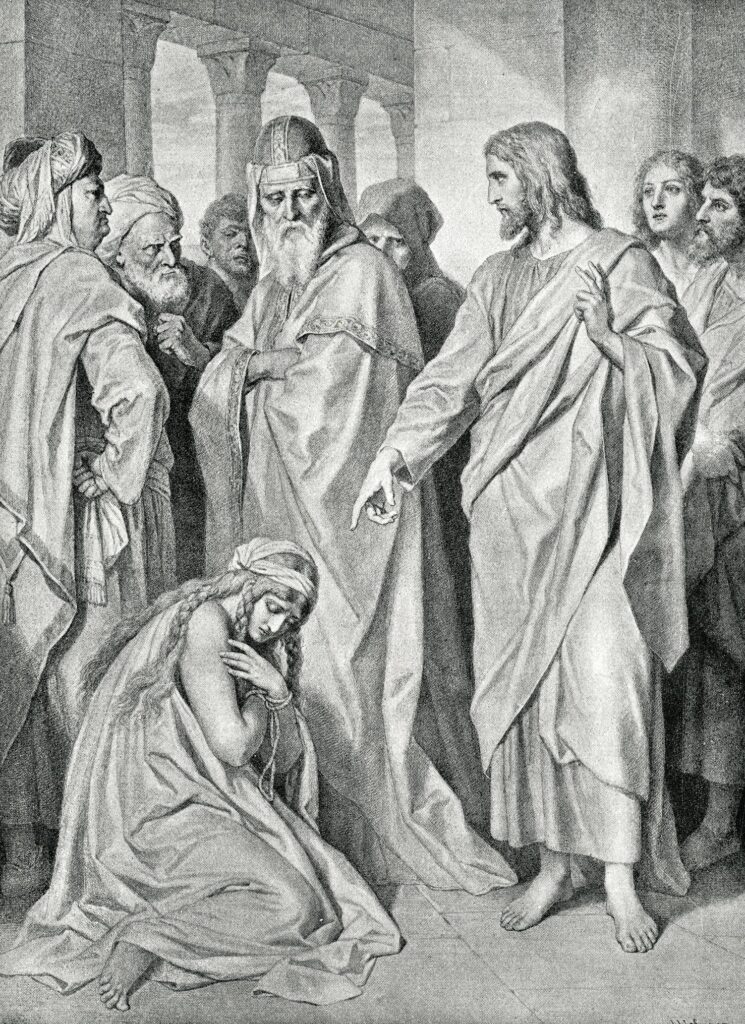
For instance, during the Trump administration, there was a White House bible study led by a leader that has an ministry called Capital Ministries. And they teach in that those bible studies on marriage—that women are homemakers and that the bible says that’s their role, their main role. The bible study actually said the primary functions of women are women, not even wives. Women have homemaking responsibilities because of Proverbs 31, home management responsibilities (Titus 2:5), mothering responsibilities (Titus 2:3-5) teaching younger women (1 Timothy 3:11), displaying hospitality (1 Timothy 5:10), and differentiating in dress (1 Timothy 2:9). It goes on to say that men, husbands and men, are leaders and providers.
Christian feminists and egalitarian evangelicals dispute these interpretations of the bible, and it’s a very kind of heated debate within evangelicalism that most people don’t know about. There is a harsher, biblical patriarchy called ‘the biblical patriarchy movement’ where they see God as male and some of them even go as far as saying that women shouldn’t be able to vote, that their main role is mothers, wives, having ten, eleven, twelve, thirteen children so they can shoot them out into the world and these children can influence society based on biblical principles. This is happening right in our culture.
So is patriarchy alive and well? Oh yes, absolutely.
Does it affect human life? Absolutely. Some would say for the better, because God designed male and female a certain way and if we live out these traditional roles and follow them, we’re being obedient to God and then we’ll create a wonderful society where families will thrive and society will thrive. And that’s true for some that follow these theologies and believe in these theologies. Some do have good marriages, and yet there’s epidemics of abuse against women in these networks and child sexual abuse, epidemics that have recently come forth like within the Southern Baptist convention networks. Then you get the biblical patriarchy movement. You get Josh Duggar who was sexually abusing his sisters and was recently arrested for child pornography, get major coverups of these abuses within these all male-led networks. Some have used the scriptures, you know, that women/wives should submit to their husbands for instance, as a way, if women aren’t submitting, that is reason for them to be abusive. That’s toxic patriarchy in its worst forms, but patriarchy is all over culture. It’s not just in these religious circles, as we’ve seen with the #metoo movement in Hollywood. Angela Angelica Houston actually said once that Hollywood is kind of like the church and that women don’t have a voice, and it’s been shown through what happened with these women that were silenced after being sexually abused and these men in power that got away with it for a long time.
it’s a mixed bag of us women and girls—how we will face the patriarchy in the world and how we will either undo it or get smothered under it.
It’s still happening in all aspects of our culture. Look at the Olympics, the girls that were sexually abused in sports, in Girl Scouts. And, you know, it even happens to boys. Boys and men are affected by patriarchy as well. Not only abuse, but just incredible demands on them having to be leaders when maybe they’re not leaders, maybe their wives are better leaders. There’s just complexity in that. This is not just about women being oppressed. It’s about men being oppressed, having unrealistic expectations on them. And all you have to do is go to the UN and see the statistics on violence against women and girls throughout the world globally. It’s just devastating. I just also want to say that that patriarchy is not perpetrated or generated by only men there’s women, as we see with the women in Christian nationalism, that support this toxic patriarchy.
I think that anything we see that’s destructive in our society, we can trace to patriarchy, toxic patriarchy as a root cause. So I want to just wrap up by saying that yes, patriarchy has impacted all of life and has personally impacted my life and continues to, but one of the things I’m really looking at lately is really observing the women and men that seem to have transcended patriarchy, at least in the sense that they’re creating their own versions of their life, as best as possible within the patriarchal system that they live and encouraging others to do the same in their own lives, to encourage the calling out of the toxic patriarchal behaviors of leaders and people in their communities.
In our culture for so long, patriarchy didn’t really have a face. It was just a norm. It was accepted as a given without naming it as what it is: the rule of men. For centuries women, and even men, have been saying no, that’s not the way it’s supposed to be, but their voices were mostly silenced or erased. But now that we have the internet… there’s no gatekeepers on the internet so the voices of those who challenge patriarchy are getting louder. Even in the Christian evangelical world, there’s so much pushback from evangelical feminists and Christian feminists and advocates and activists, same in Hollywood and all aspects of our society. Voices are rising. We have to keep our eye on the shape-shifting, hideous way that toxic patriarchy moves through decades, through centuries, right in front of our eyes.
I don’t want to end on a grim note because I think there is hope and I’m more of an optimist than a pessimist. I do want to say that I think because there’s so much pushback against patriarchy, that patriarchy will get tougher. I think that’s the nature of patriarchy. They’re going to push back harder, but there’s such fiery women that are speaking out for equality and equal opportunity in all aspects of our lives and men who support us. So I do see hope. And I do know personally, since the beginning of my own journey, that I’ve come back to places of my own sense of power when I was a 13-year-old tomboy, when I had a sense of my own self that I would find taking walks in nature with my dog and having those quiet spaces where I felt all powerful and completely in my body, in my sense of self. And I’m there. And I bring that today. And I think that we need to continue to reclaim parts of ourselves that we lost and speak the truth and stand for justice and stand for what is right. No matter the obstacles. And I feel like many of us are doing that and really identify the qualities of those who are challenging, toxic systems of patriarchy and taking back what is rightly theirs:
standing for the equality of all human beings.
Learn more about Kathy’s latest documentary — Baptizing Feminism — here
what gives a woman the confidence and the power

to undo the patriarchy that they’ve been brainwashed to believe
Listen to the Episode
&
Share your Comments with us below!

